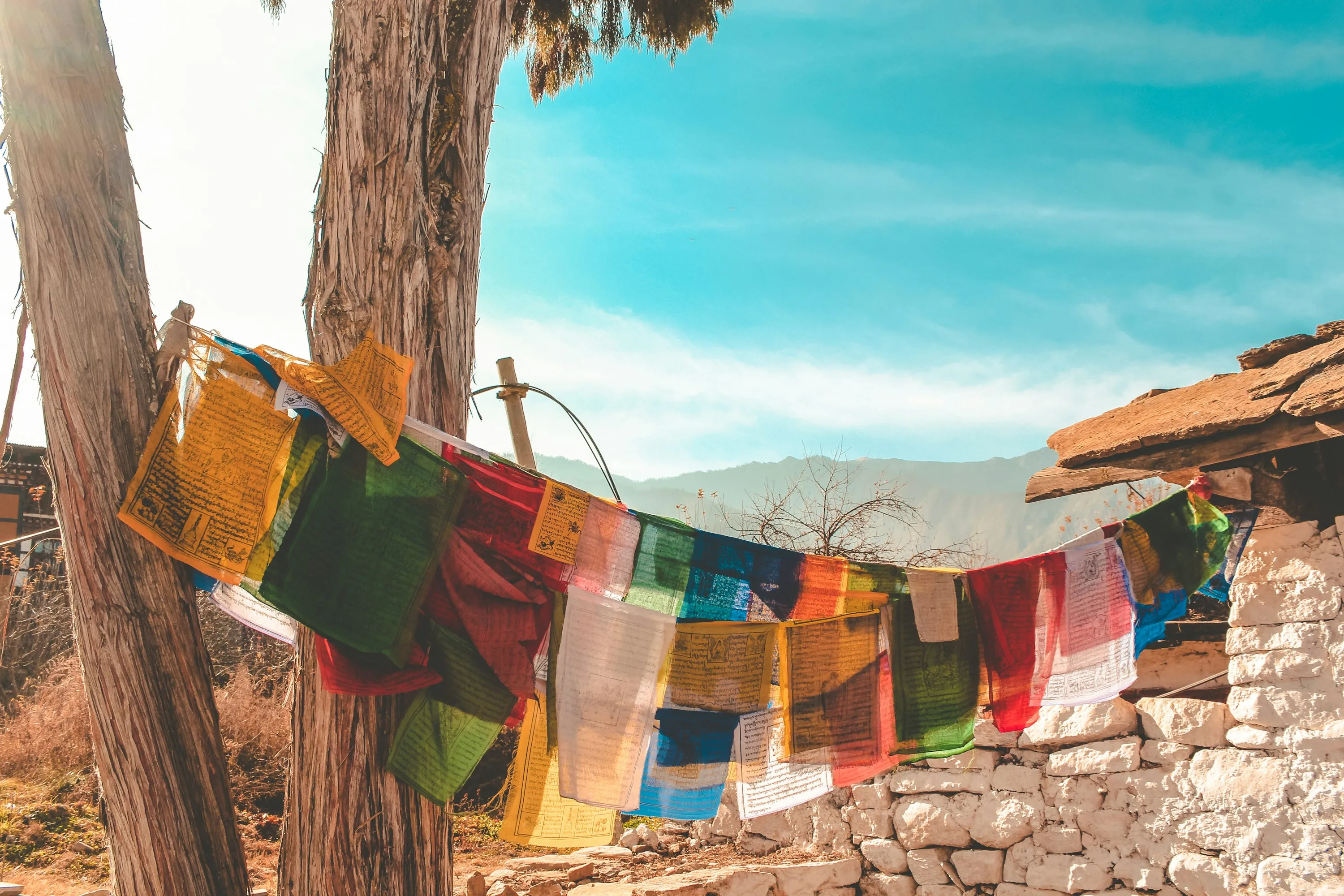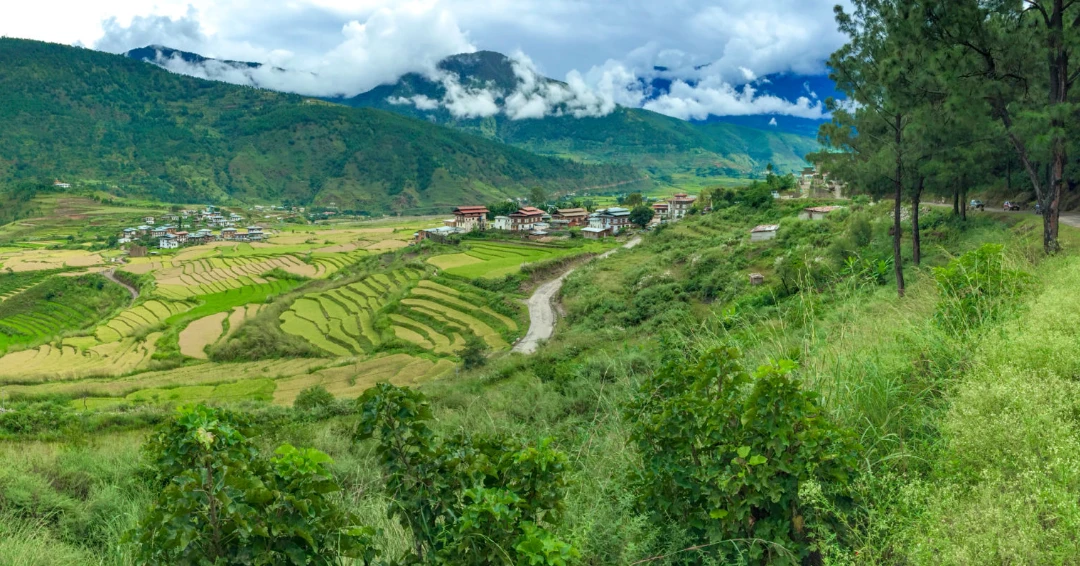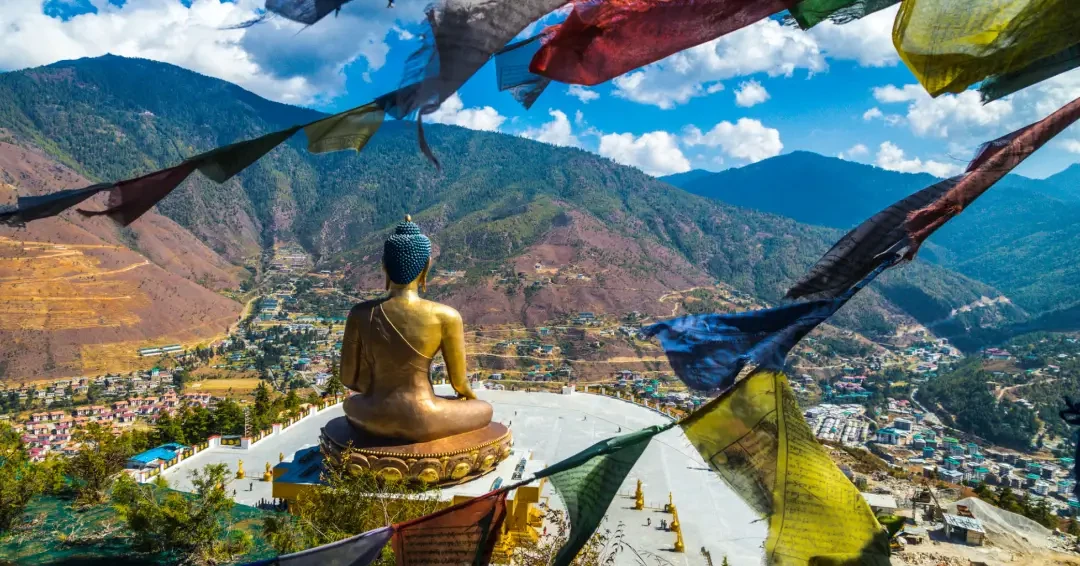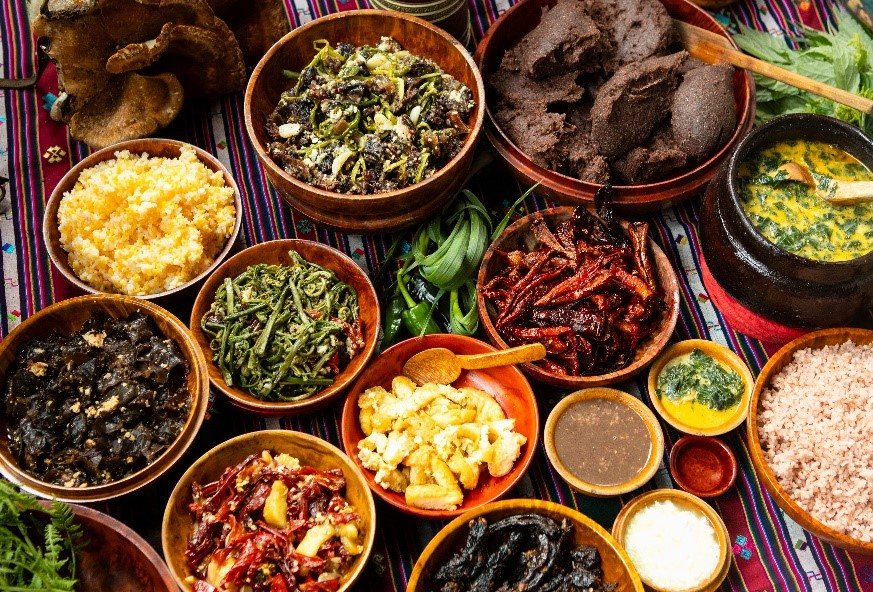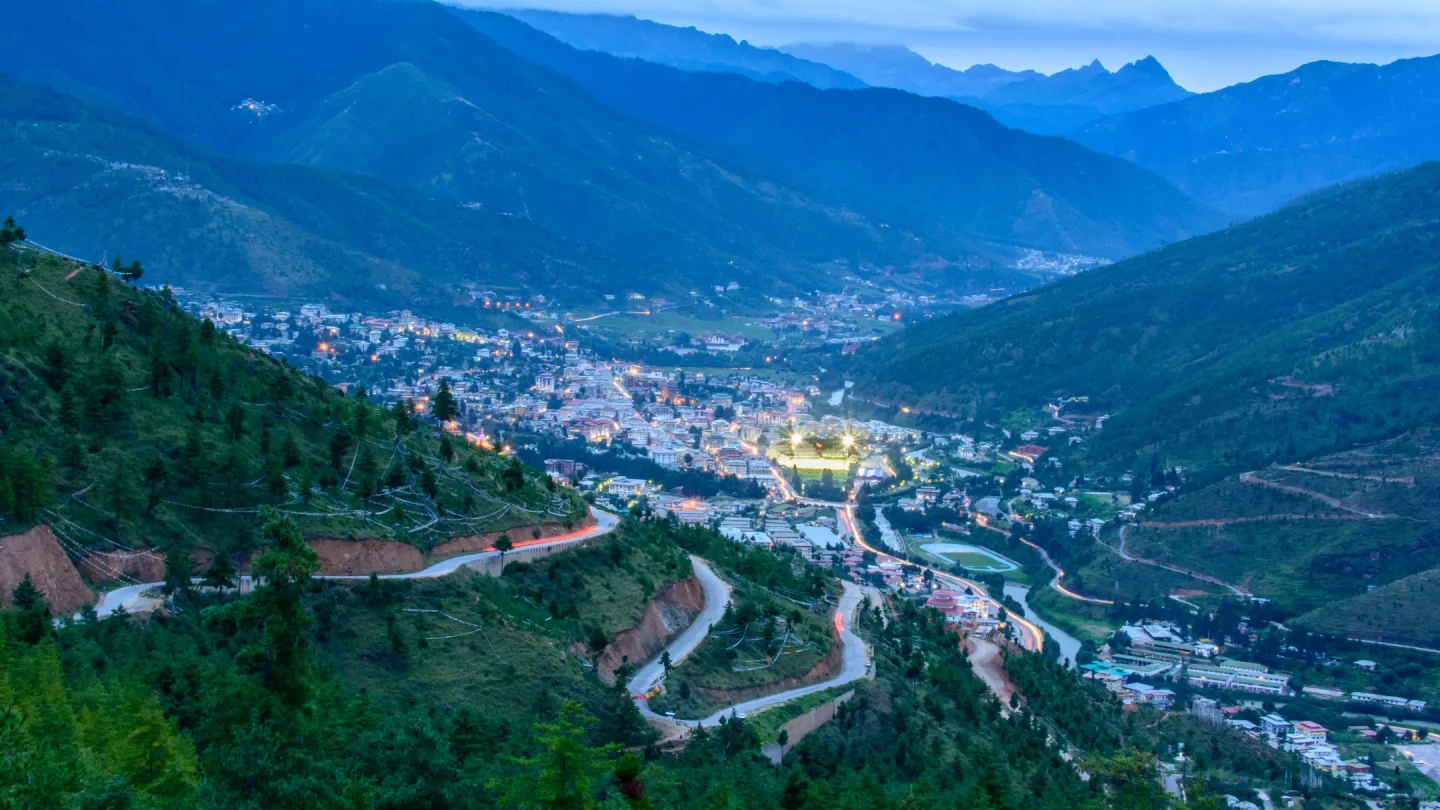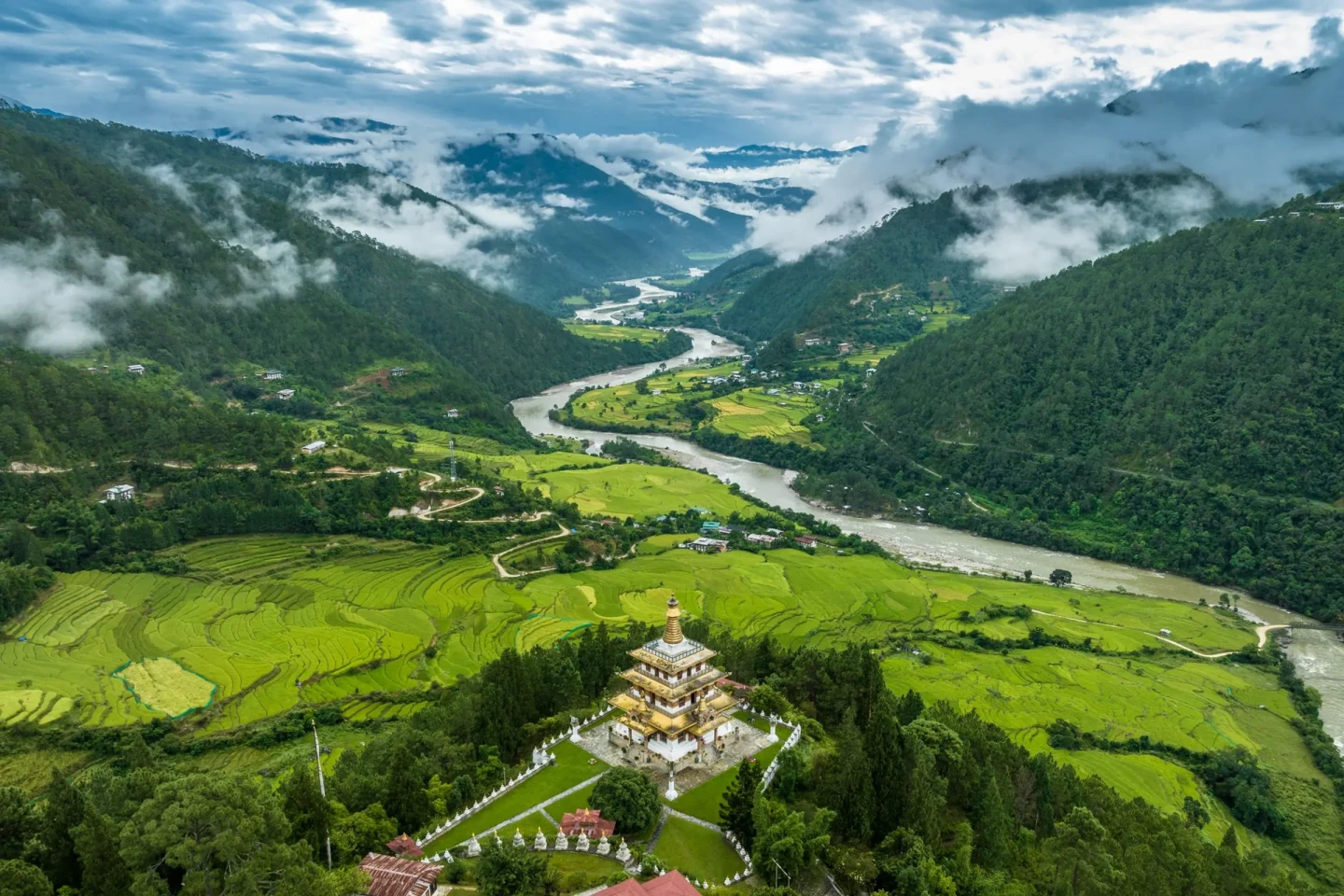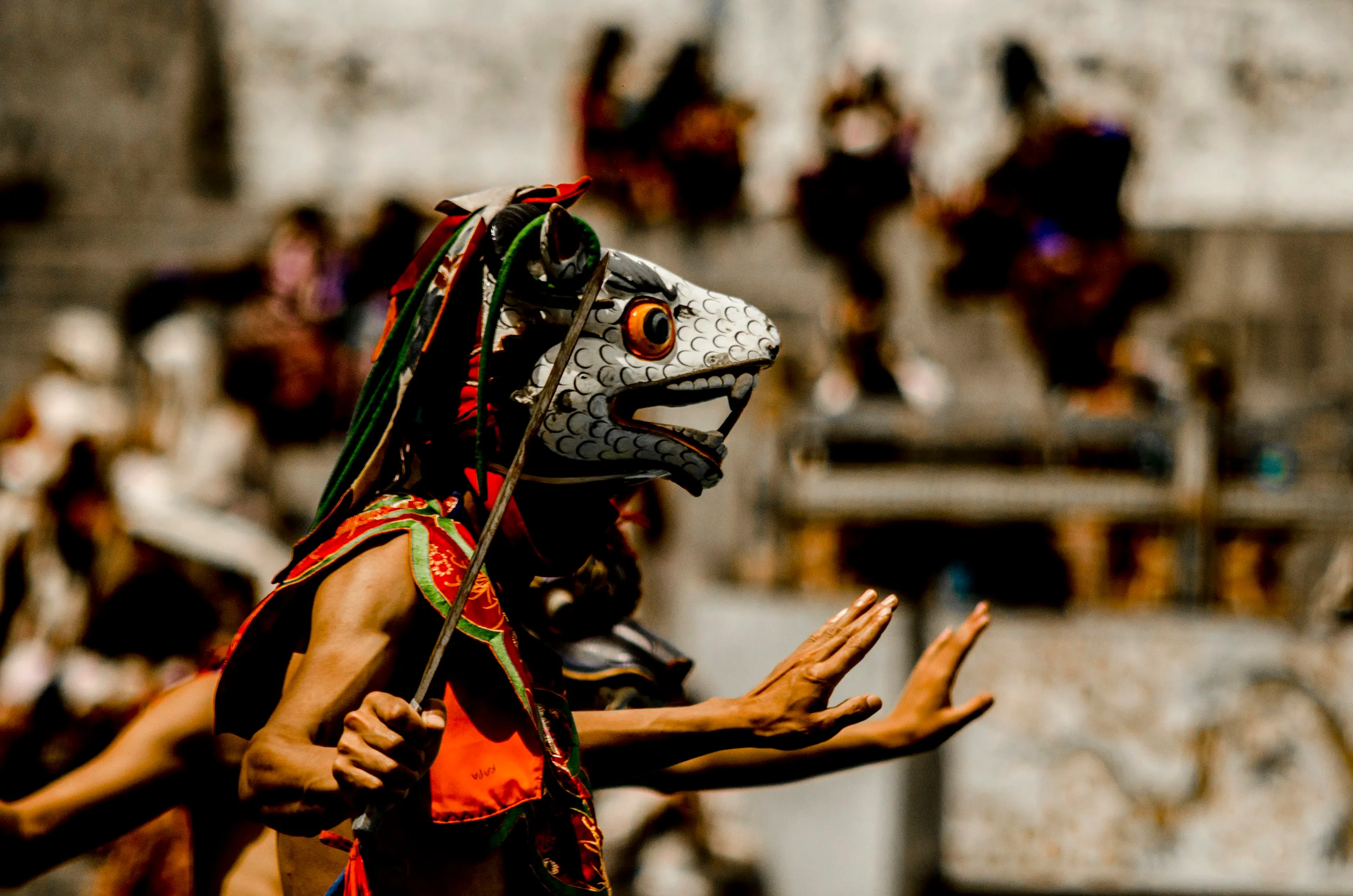Bhutan, often called the Land of the Thunder Dragon, is a small Himalayan kingdom that captivates with its snow-capped peaks, lush valleys, and fortified monasteries perched on cliffs, offering a sense of serenity and introspection that resonates with Georgia's own history of resilience and spiritual depth. While both nations are landlocked and mountainous, sharing a commitment to preserving their unique identities amid global influences, Bhutan stands out for its deliberate pace of development, guided by the philosophy of Gross National Happiness, contrasting Georgia's more dynamic integration into European spheres. Diplomatic ties between Georgia and Bhutan, though limited, have grown through initiatives like the 2022 Memorandum of Understanding on tourism cooperation, fostering potential exchanges in cultural and environmental preservation. This relationship underscores shared values of sustainability and heritage, making Bhutan an ideal destination for Georgians seeking a profound escape from the familiar landscapes of the Black Sea region to the mystical heights of the Himalayas. Despite the geographical distance, the journey promises transformative experiences, from trekking ancient trails to witnessing vibrant festivals, all while navigating a controlled tourism model that ensures authenticity and minimal environmental impact. For those unfamiliar with Bhutan, this guide, crafted from the perspective of an experienced Bhutanese travel consultant, delves deeply into every aspect of planning and enjoying your trip, equipping you with the knowledge to embrace this rare gem of a destination.
Visa and Entry Requirements
Bhutan's tourism is governed by a high-value, low-volume policy, meaning all foreign visitors, including Georgians, must book their trips through licensed Bhutanese tour operators to maintain sustainable development and cultural integrity. This controlled approach ensures that tourism benefits local communities without overwhelming the fragile ecosystem or traditions. For Georgian tourists, the visa process begins with selecting a reputable tour operator who will handle the application on your behalf, submitting it to the Tourism Council of Bhutan. Required documents typically include a scanned copy of your passport, valid for at least six months beyond your planned departure from Bhutan, a recent passport-sized photo, and proof of your tour booking, such as an itinerary and payment receipt. The operator will also require details like your flight information and personal particulars to complete the form. Once approved, which usually takes about 72 hours but can extend to a week during peak seasons, you'll receive a visa clearance letter via email, which you must present at immigration upon arrival at Paro International Airport or land borders. The visa itself is stamped in your passport on entry and is valid for the duration of your tour. Payment for the tour, including the mandatory Sustainable Development Fee (SDF), must be wired in advance to the operator's account, as this secures the visa approval—Bhutan does not issue visas without confirmed bookings. The SDF, currently set at USD 100 per person per night for most international visitors (with reductions for children under 12 and exemptions for those under 6), funds education, healthcare, and environmental conservation, directly impacting the overall cost of your trip. For a week-long stay, this adds USD 600 to USD 700 per person, on top of accommodation, meals, and transport, making budgeting essential. Georgians should note that while eVisas are mentioned in some sources, Bhutan's system mandates operator involvement, so avoid independent applications to prevent delays or denials.
Travel Routes from Georgia to Bhutan
Traveling from Georgia to Bhutan involves careful planning due to the absence of direct flights and the unique constraints of Paro International Airport, one of the world's most challenging landing strips nestled in a narrow valley. From major Georgian cities like Tbilisi, the most common routes transit through hubs such as Delhi in India, Bangkok in Thailand, or Kathmandu in Nepal, as these are primary gateways served by Bhutan's national carriers, Drukair (Royal Bhutan Airlines) and Bhutan Airlines (Tashi Air). For instance, you could fly from Tbilisi International Airport (TBS) to Delhi's Indira Gandhi International Airport via Turkish Airlines or Georgian Airways, with a flight duration of about 5-6 hours, followed by a 2-3 hour Drukair flight to Paro. Similarly, routes via Bangkok might involve Pegasus Airlines or flydubai to Suvarnabhumi Airport, then connecting on Bhutan Airlines, totaling around 10-12 hours in the air plus layovers. Kathmandu offers another option, reachable via Qatar Airways or Turkish Airlines from Tbilisi, with a subsequent short hop to Paro. These carriers are the only ones authorized to operate into Bhutan, limiting options but ensuring pilots are specially trained for the airport's demanding conditions, including manual visual landings amid surrounding mountains. Paro Airport operates solely during daylight hours and is prone to weather-related delays, particularly fog or high winds, so build flexibility into your schedule—flights can be postponed by hours or even days. Booking should be done well in advance, ideally 3-6 months ahead for peak seasons, through your tour operator who can coordinate seamless connections. Expect layover times of at least 4-6 hours to account for customs and potential disruptions, and consider overnight stays in transit cities if needed. Realistic expectations include total travel times of 15-20 hours, with costs varying from USD 500-800 round-trip, depending on the season and airline promotions.
Best Time to Visit and Seasonality
Bhutan's climate is diverse due to its Himalayan topography, ranging from subtropical lowlands to alpine highlands, creating four distinct seasons that profoundly influence travel experiences. Spring, from March to May, brings mild temperatures averaging 15-25°C in valleys like Paro and Thimphu, with blooming rhododendrons and clear skies ideal for trekking and sightseeing, though occasional showers can occur. This period aligns with festivals such as the Paro Tshechu in April, featuring masked dances and religious rituals that offer Georgian travelers a glimpse into Bhutan's Buddhist heritage. Summer (June-August) introduces the monsoon, with heavy rains up to 500mm monthly in the south, leading to lush greenery but also landslides and foggy conditions that may disrupt flights and road travel—best avoided unless focusing on birdwatching or mushroom festivals like the Matsutake in August. Autumn (September-November) is widely regarded as the prime season, with crisp air (10-20°C), vibrant festivals like the Thimphu Tshechu, and excellent visibility for views of snow peaks, drawing moderate crowds but allowing for immersive cultural engagements. Winter (December-February) sees colder weather, dropping to 0-10°C or below in higher areas, with possible snow, making it suitable for low-season tranquility and festivals like the Punakha Drubchen, though heating in accommodations might be basic. For Georgian tourists accustomed to temperate climates, autumn or spring are recommended to balance comfortable weather, fewer crowds than peak festivals, and opportunities for hiking or cultural immersion without extreme conditions affecting plans.
Money, Costs, and Payment Methods
The official currency in Bhutan is the Ngultrum (BTN), pegged at par with the Indian Rupee (INR), which is also widely accepted, facilitating exchanges for travelers transiting through India. Georgian visitors should exchange currency upon arrival at Paro Airport or major banks in Thimphu and Paro, as rates are government-regulated and favorable; carrying USD is advisable for initial exchanges, given its universal acceptance. ATMs are available in larger towns from banks like Bhutan National Bank and Bank of Bhutan, accepting Visa and Mastercard, but reliability can vary in remote areas, with withdrawal limits around BTN 10,000-20,000 per transaction and fees of BTN 200-500. Credit cards are accepted in upscale hotels and some shops, but cash reigns supreme for local markets and tips, so plan to carry sufficient Ngultrum or USD. Tour prices, mandated at a minimum daily rate but often higher for customized experiences, typically include accommodation in 3-star hotels, all meals, private transport, an English-speaking guide, and entry fees, starting from USD 250-300 per day plus SDF. Extras like alcoholic beverages, souvenirs, optional activities such as hot stone baths, and tips (USD 10-15 per day for guides and drivers) are not covered, potentially adding USD 50-100 daily. For Georgians, budgeting USD 2,000-3,000 for a week-long tour per person, excluding flights, provides a realistic estimate, emphasizing value in authentic experiences over luxury.
Health, Safety, and Travel Insurance
Health considerations in Bhutan revolve around its high-altitude terrain, where elevations from 1,200m in Paro to over 3,000m in passes can trigger altitude sickness, manifesting as headaches, nausea, or fatigue—Georgian travelers from lower elevations should acclimatize gradually. Recommended vaccinations include Hepatitis A, Typhoid, and Tetanus, with boosters for Diphtheria and Rabies if planning rural stays, as medical facilities are basic outside Thimphu, where the Jigme Dorji Wangchuck National Referral Hospital offers competent care but lacks advanced specialties. Drinking bottled or boiled water prevents gastrointestinal issues, and mosquito repellents guard against rare vector-borne diseases in lowlands. Bhutan is remarkably safe, with negligible crime rates due to strong community values and low population density, though minor risks include stray dogs (prompting rabies awareness) and uneven hiking paths that could lead to slips. Travel insurance is indispensable, covering medical emergencies, evacuation by helicopter (essential for remote areas), trip cancellations, and lost baggage, as standard Georgian policies may not suffice for high-altitude activities—opt for plans with at least USD 100,000 in evacuation coverage to ensure peace of mind in this isolated kingdom.
Cultural Etiquette and Social Expectations
Bhutanese society is deeply rooted in Buddhist principles of respect, humility, and harmony, requiring Georgian travelers to adapt behaviors for meaningful interactions. In temples and monasteries, dress modestly with long pants, covered shoulders, and no hats or sunglasses indoors; remove shoes before entering sacred spaces and move clockwise around stupas or altars as a sign of reverence. Photography is prohibited inside religious sites to preserve sanctity, and speaking softly avoids disturbing monks or worshippers. Socially, greet with a slight bow and "Kuzuzangpo la" (hello), accepting offerings like butter tea with both hands to show gratitude. Patience is key in a culture that values contemplation over haste, so embrace delays as opportunities for reflection rather than frustration. Humility shines through avoiding boastfulness, and while Georgians' warm hospitality aligns well, tone down directness in negotiations or requests to fit Bhutan's indirect communication style. Public displays of affection are frowned upon, and pointing with fingers—use an open palm instead—prevents offense. These nuances, when observed, foster genuine connections, allowing travelers to appreciate Bhutan's emphasis on collective well-being over individualism.
Connectivity, SIM Cards, Internet Access
Connectivity in Bhutan has improved, with Wi-Fi available in most hotels and cafes in urban areas like Thimphu and Paro, though speeds vary from 5-20 Mbps and can be unreliable in rural spots due to terrain. For mobile access, Georgian travelers can purchase local SIM cards from B-Mobile (Bhutan Telecom) or TashiCell at Paro Airport or outlets in major towns, requiring a passport copy and photo; tourist SIMs cost BTN 200-500, offering data packages like 2-6GB for 7-14 days at BTN 200-650. These provide 4G coverage in valleys but spotty signals in mountains, useful for navigation or staying connected. Georgian apps like banking or social media work without restrictions, but a VPN is recommended for secure access or bypassing occasional geo-blocks. Activation is straightforward, often assisted by your guide, ensuring you remain reachable while exploring without excessive roaming fees from home providers.
Language and Communication
Dzongkha is Bhutan's national language, but English is the medium of instruction in schools and prevalent in tourism, making communication accessible for most Georgian travelers. Licensed guides are fluent in English, trained to interpret cultural nuances and facilitate interactions, though Georgian-speaking guides are rare—request one in advance if needed, possibly at extra cost. In rural areas, locals may speak limited English, relying on regional dialects, so simple phrases like "thank you" (Kadinche la) or gestures aid rapport. For those with limited English, visual aids, translation apps, or the guide's assistance bridge gaps, emphasizing non-verbal respect like smiling and patience to enhance experiences in this multilingual society.
Packing and Preparation Advice
Packing for Bhutan demands versatility to handle varying climates, from warm valleys to chilly highlands, so layer clothing: breathable base layers, fleece jackets, waterproof windbreakers, and thermal underwear for evenings or higher altitudes. Sturdy hiking boots with good grip are essential for trails, alongside comfortable walking shoes for towns; pack quick-dry pants, long-sleeved shirts for modesty in temples, and a hat, gloves, and scarf for cold snaps. Rain gear, including ponchos and umbrella, prepares for monsoons, while sunscreen, lip balm, and sunglasses protect against UV at elevation. Personal items like reusable water bottles, power banks (for outages), and adapters for Type D, M, or C plugs (220V) are practical; bring medications for altitude sickness (acetazolamide if prescribed), motion sickness for winding roads, and basics like antidiarrheals, as pharmacies are limited. Other considerations include binoculars for wildlife, a journal for reflections, and eco-friendly toiletries to align with Bhutan's sustainability ethos—avoid single-use plastics. For Georgians unused to Himalayan conditions, test gear on local hikes and pack light, as luggage limits on domestic flights are 20kg.
Bhutan’s Unique Tourism Philosophy
At the heart of Bhutan's tourism lies the philosophy of Gross National Happiness (GNH), a holistic approach prioritizing citizens' well-being over economic growth, shaping policies that limit visitor numbers to preserve cultural and environmental integrity. Introduced by King Jigme Singye Wangchuck in the 1970s, GNH measures progress through psychological wellness, health, education, and ecological diversity, leading to cautious modernization where tourism is "high value, low impact." This means capping infrastructure like hotels and roads to avoid overdevelopment, favoring quality experiences that immerse visitors in authentic Bhutanese life rather than mass commercialization. For Georgian travelers, understanding this deeper rationale reveals why Bhutan eschews unchecked growth: to safeguard biodiversity (72% forest cover), maintain traditions amid globalization, and ensure benefits reach local communities through the SDF. This philosophy fosters meaningful travel, encouraging reflection on happiness beyond material wealth, aligning with Georgia's own cultural preservation efforts.
Mindset and Expectations for Visitors
Approaching Bhutan with an open mindset is crucial, as its slower pace of life contrasts the efficiency Georgians might expect, emphasizing mindfulness over haste in daily routines like tea ceremonies or monastery visits. Infrastructure is developing but modest—roads are winding and potholed, hotels cozy rather than opulent, often family-run with basic amenities like hot water but no air conditioning. Luxury shopping or vibrant nightlife is absent, with evenings centered on stargazing or cultural shows instead of clubs or malls, redirecting focus to nature's grandeur, spiritual sites, and interpersonal connections. Georgian travelers should anticipate these as enriching elements, embracing simplicity that highlights Bhutan's spiritual essence and fostering personal growth through disconnection from material conveniences.
Food and Dining Culture
Bhutanese cuisine is hearty and flavorful, dominated by spicy chilies, cheese, and simple staples that reflect the agrarian lifestyle and Himalayan influences. Signature dishes like ema datshi—chilies stewed in cheese sauce—embody the national love for heat, paired with red rice, a nutty grain grown in terraces. Other staples include momos (dumplings filled with meat or vegetables), phaksha paa (pork with chilies), and jasha maru (spicy chicken stew), often accompanied by fermented yak cheese or dried meats in higher altitudes. Dining is communal, with meals served family-style on the floor or low tables, promoting sharing and hospitality; butter tea (suja), salty and churned with yak butter, is a staple beverage for warmth, while ara (local rice wine) adds festivity. Alcohol is integrated socially but moderately, reflecting Buddhist temperance. For Georgians accustomed to khachapuri or khinkali, Bhutan's spice levels may surprise, but vegetarian options abound, and tours can accommodate preferences, turning meals into cultural exchanges.
Festivals, Religion, and Sacred Places
Religion permeates Bhutanese life through Vajrayana Buddhism, where sacred sites like Taktsang Monastery (Tiger's Nest) symbolize spiritual quests, and festivals (Tshechus) honor Guru Rinpoche with masked dances, music, and communal gatherings. Attending a Tshechu, such as in Thimphu or Paro, immerses visitors in colorful costumes, cham dances depicting moral tales, and blessings from lamas, contributing to a deeper appreciation of karma and compassion. Conduct at these sites demands respect: enter clockwise, avoid pointing at deities, and maintain silence during rituals. These experiences enrich understanding of Bhutan's worldview, where religion fosters unity and ethical living, offering Georgian travelers profound insights into shared human spirituality.
Hidden Challenges and Practical Inconveniences
While Bhutan's allure is undeniable, travelers may encounter subtle challenges that test patience, such as slow service in restaurants due to handmade preparations or unexpected itinerary shifts from weather-blocked roads. Power outages occur sporadically, especially in remote areas reliant on hydropower, dimming lights but enhancing starry nights with candlelit dinners. Road conditions, with narrow, curving paths through mountains, can cause motion sickness, and basic facilities like intermittent hot water frame these as authentic aspects of a less commercialized destination. Embracing them as part of Bhutan's charm—opportunities to slow down and connect—transforms potential frustrations into memorable stories of resilience and simplicity.
Shopping and Souvenirs
Shopping in Bhutan centers on artisanal crafts that embody cultural heritage, with markets in Thimphu and Paro offering handwoven textiles like kira and gho fabrics, intricate wood carvings, and incense made from Himalayan herbs. Thangka paintings, prayer wheels, and bamboo products make meaningful souvenirs, often sourced from cooperatives supporting local artisans. High-end malls are absent, replaced by weekend markets where bargaining is mild—start at 10-20% off but respect fixed prices in government emporiums for authenticity. Georgian travelers should seek certificates for antiques to avoid customs issues, focusing on quality items that sustain traditions rather than mass-produced trinkets.
Altitude Awareness and Physical Preparedness
Altitude in Bhutan affects individuals variably, with symptoms like shortness of breath or insomnia emerging above 2,500m, necessitating precautions for safe enjoyment. Hydrate extensively (3-4 liters daily), avoid alcohol initially, and ascend gradually—spend first days in lower Paro before higher sites. Acclimatization walks, chewing ginger, and medications like Diamox (if advised by a doctor) mitigate risks; monitor for severe signs like confusion, requiring descent. Physical preparation involves cardio exercises weeks prior, adjusting activities like treks to personal fitness, ensuring the journey remains invigorating rather than overwhelming.
Security, Safety, and Emergency Information
Bhutan ranks among the safest destinations, with minimal theft or violence thanks to vigilant communities and low inequality, allowing carefree exploration. Nonetheless, adhere to local laws like no smoking in public (fines apply) and respect wildlife. Emergency contacts include police at 113, medical at 112, and your tour guide for immediate aid; Georgian embassy services are handled via the embassy in India (New Delhi), reachable at +91-11-4707-8600 for consular support. Carry copies of documents and inform family of itineraries for added security in this peaceful realm.
Photography and Drones
Photography in Bhutan captures stunning landscapes and festivals, but rules protect sacred spaces: no photos or videos inside temples, monasteries, or dzongs without permission, and always ask locals before portraits to honor privacy. Drones are strictly regulated, prohibited for tourists without prior approval from the Civil Aviation Authority, often denied near religious or government sites—violations risk confiscation or fines. Respectful behavior, like not using flash on artifacts, ensures photography enhances rather than intrudes on cultural sanctity.
What Bhutan Does Not Have
Bhutan's deliberate preservation means an absence of skyscrapers, fast-food chains like McDonald's, casinos, or sprawling shopping centers, elements that could dilute its serene identity. This lack underscores the kingdom's charm, prioritizing verdant forests, traditional architecture, and community-focused living over urban excess, inviting Georgian travelers to relish the purity of unspoiled experiences.
Important Questions to Ask Before Booking a Tour
Before committing to a Bhutan tour, Georgian travelers should engage in thorough discussions with operators to ensure alignment with expectations. Inquire about the guide's qualifications and language proficiency—will they speak fluent English, and can they provide insights into Bhutan's history comparable to Georgia's? Ask for details on itinerary flexibility: how adaptable is the schedule to weather changes or personal interests, like extending time at festivals? Probe accommodations: what standards can you expect, from eco-lodges to boutique hotels, and do they include Wi-Fi or heating? Food preferences matter too—confirm if dietary needs, such as vegetarian options or less spicy meals, are accommodated, drawing parallels to Georgian cuisine. Emergency protocols are vital: what measures are in place for health issues or evacuations, and does the operator coordinate insurance? Regarding connectivity, ask how SIM cards are obtained and if VPN recommendations are provided for seamless app use. Language barriers shouldn't be overlooked—verify if multilingual resources are available for non-English speakers. Tipping customs: clarify expected amounts for guides and drivers to budget accordingly. Finally, discuss insurance requirements: does the tour mandate coverage, and what specifics like altitude evacuation are advised? These questions, posed conversationally, build trust and tailor the experience to your needs.
Conclusion
In reflection, Bhutan emerges as a rare sanctuary for Georgian travelers yearning for cultural depth, untamed natural beauty, and spiritual tranquility amid a world of rapid commercialization. This Himalayan kingdom, with its commitment to Gross National Happiness, offers a counterpoint to fast-paced lives, inviting immersion in timeless traditions and breathtaking vistas that rejuvenate the soul. For those from Georgia, the parallels in mountainous splendor and cultural pride make the journey feel like a bridge between worlds, promising profound connections and lasting memories far removed from ordinary travel.




